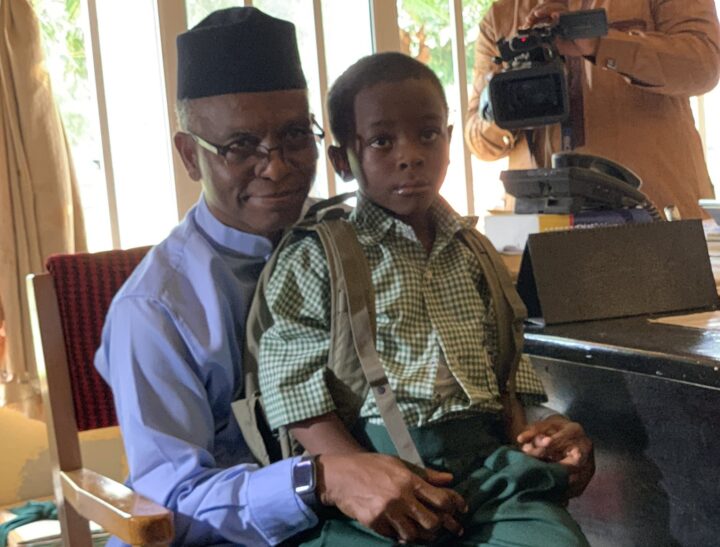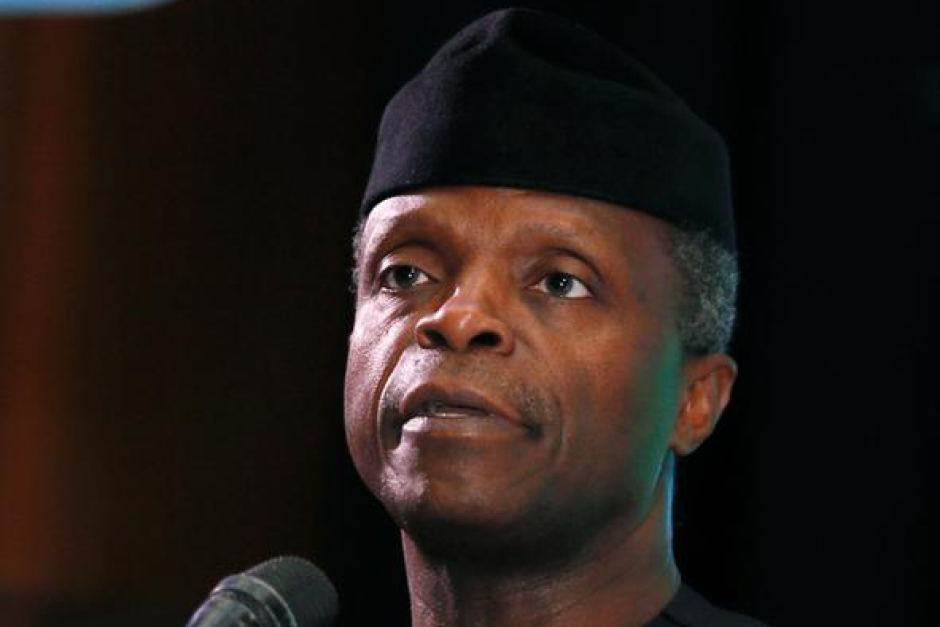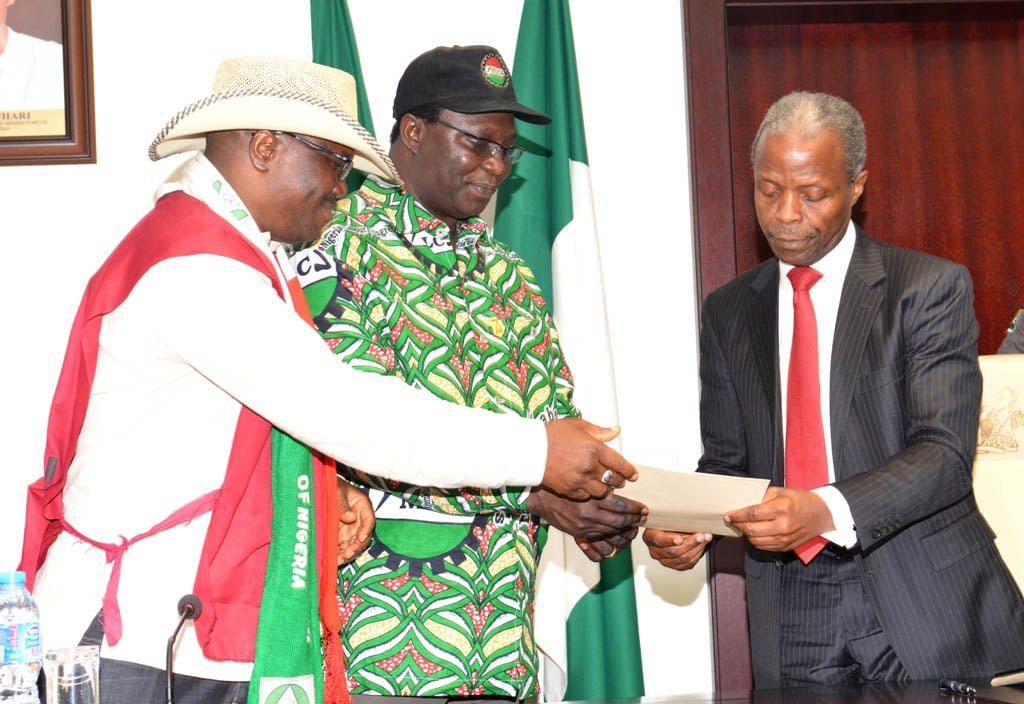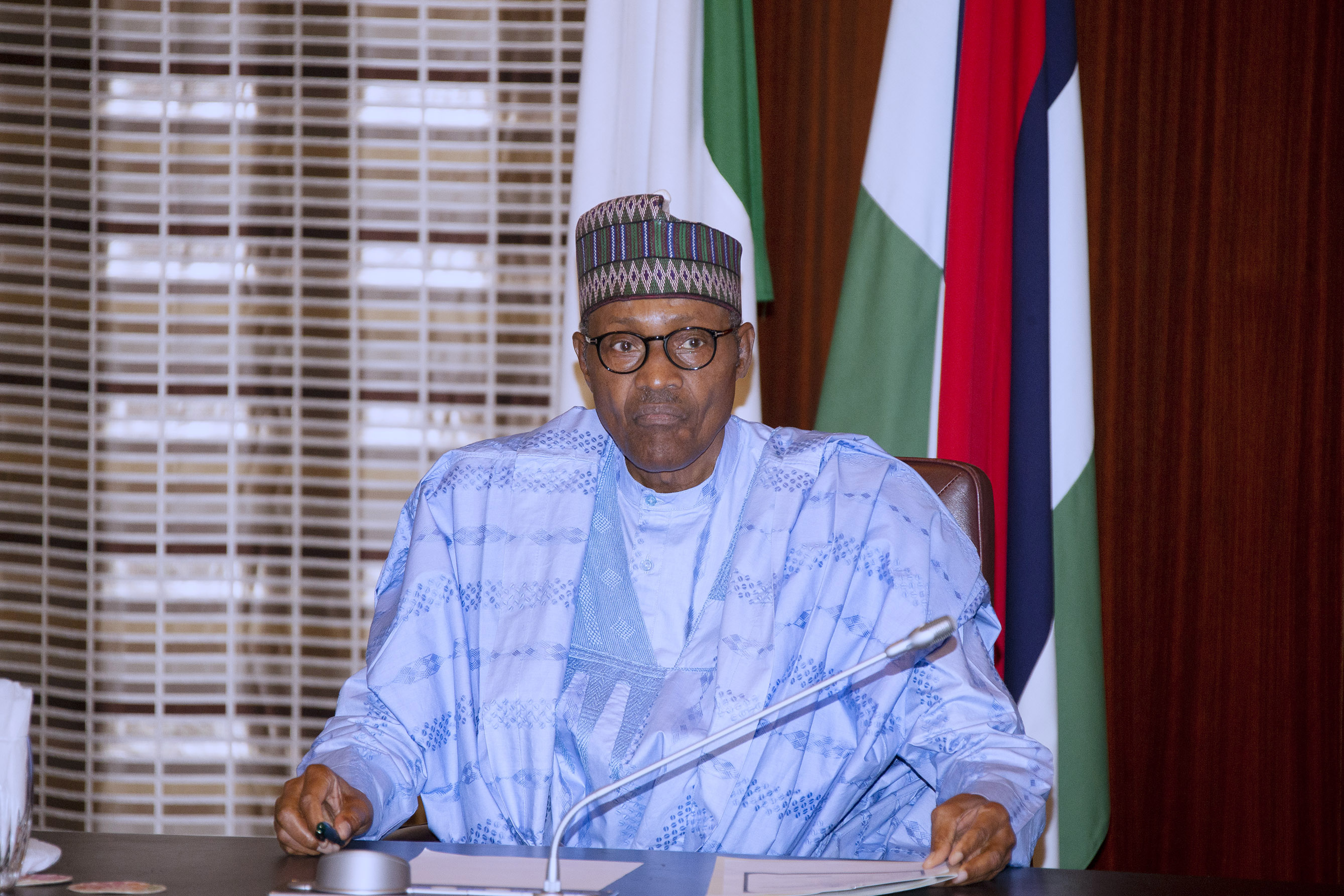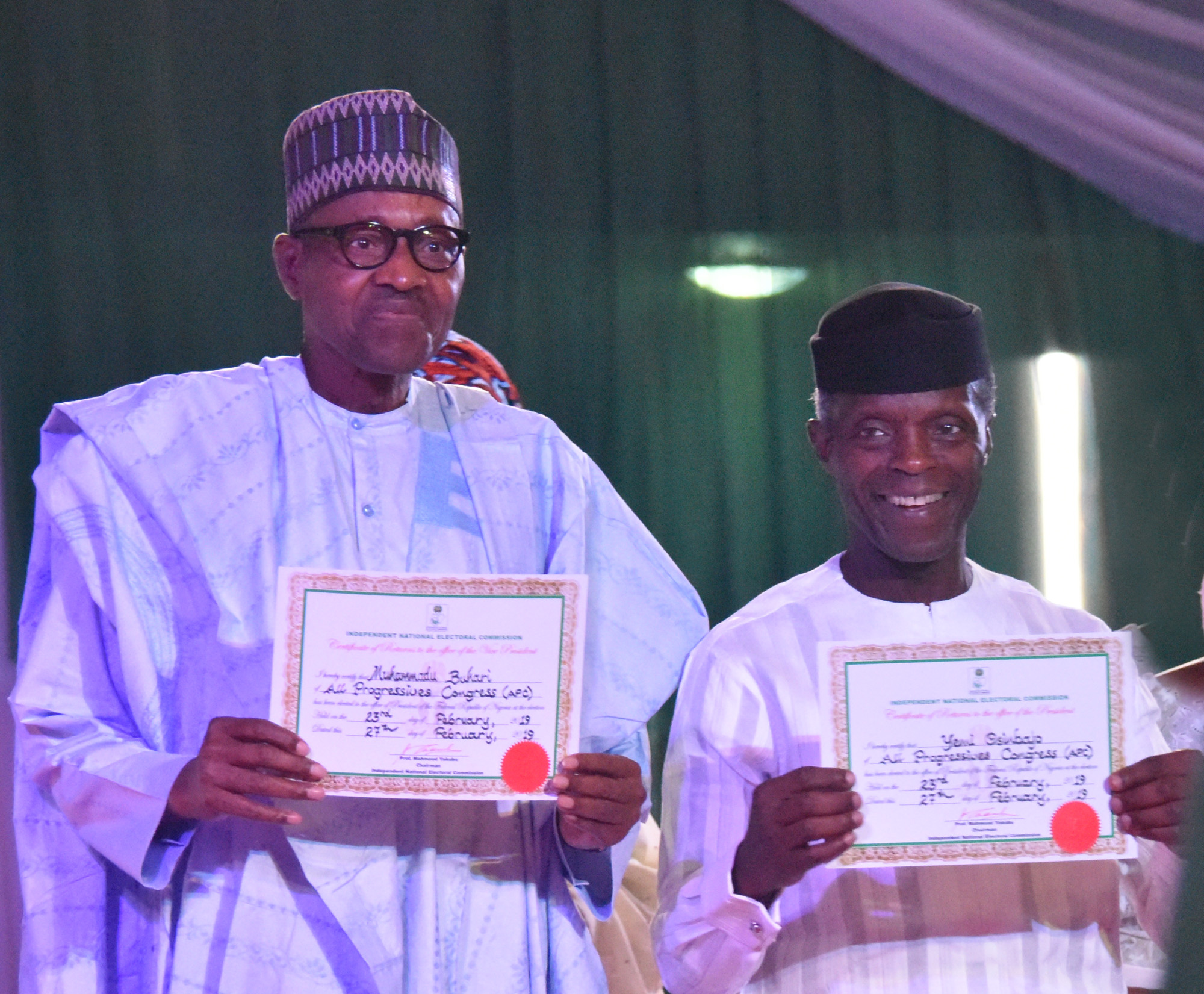Kaduna State Governor, Nasir El-Rufai’s dramatic registration of his six-year old son, Abubakar Al-Siddique in a public school early this week, and the spectacle that attended it signposts this country’s pathetic degeneration.
For a country of Nigeria’s size, resources and clout, the enrolment of a governor’s offspring in a public school should be the norm rather than the exception. A governor is the number one citizen of his state and should lead in the patronage of all the institutions and policies, created or merely being nurtured by his own government. But here we are, rolling out the drums for what is a given in most decent societies.
That is not to take anything away from the nobility of Rufai’s gesture though. Nigeria sorely needs precedents in the restoration of responsible and accountable leadership, a front on which the nation has suffered an incessant drought year on end. This is especially so at the state level where majority of Nigerians live in deplorable poverty.
And when I say restore, I imply that there was indeed a time in Nigeria’s past when leaders who took the entrenchment of quality and reform of education seriously, showed example by having their children learn under the system of basic education that they established. There are at least two concrete examples one can examine in the piece.
Advertisement
Late Chief Obafemi Awolowo as Premier of the Western Region remains perhaps the most impactful educational reformist in the history of Nigeria. While he served in office, there were no debates as to the enrolment of his children in public schools. Same can be said of Lateef Jakande, the man who was seen by many as likely Awolowo’s successor were Nigeria’s democracy not arbitrarily terminated just at the twilight of 1983. As Governor of Lagos State between 1979 and 1983, Jakande put his children in public schools and was said to have gone on to convince his aides with direct supervisory roles in the education ministry to put their children in public schools without which their stay in his government would be unnecessary. In the 1970s and 1980s, as a matter of fact, the children of leaders had to be in unity schools, which even though was government owned, had the best of standards producing youngsters who could hold their own anywhere in the world.
Such demonstrable confidence in public systems instituted by government is what years of corruption and failure to fund public education has foisted on the country. So, standards are so badly fallen that even the poorest of Nigeria’s poor does not desire to send his child to a public school and understandably so. Every human being is endowed with a capacity to hope for a better future. And despite poverty or may be as a result of their poverty, a lot of lowly Nigerians, realise that education is a major insurance for a better future. They also see that the public system of education has collapsed and offer limited hope for the future of their children. So, even the masses are deserting public schools for the now ubiquitous private schools, a lot of which have anything but places of quality learning.
And this is the sad thing about basic education in Nigeria. Since local and state governments have neglected their constitutional responsibilities of providing basic education for every Nigerian child, parents who appreciate the value of education go out of their way to source for funds to send their children to private schools, which do not necessarily provide better education since they lack adequate supervision from government agencies. In a lot of instances, parents are unable to access the funds to send their children to school and these children end up roaming the streets, which is how Nigeria has one of the highest burdens of out-of-school children globally.
The evil is that governments in Nigeria have abandoned the funding of education. True, every now and then, you see government people talk about investments that they have made in education, but these investments are mostly directly at initiatives that have direct impact on the political equity of the government in power rather than the people.
Advertisement
The result is that basic education of any serious quality, has become commercialised in Nigeria, a commodity which can only be accessed by people with enough money to pay. Unfortunately, turning basic education into a purchasable item is what every society should avoid.
Sadly, this is where Nigeria is. The United Nations Children Education Fund (UNICEF) says on its website that: “Even though primary education is officially free and compulsory, about 10.5 million of the country’s children aged 5-14 years are not in school. Only 61 percent of 6-11-year-olds regularly attend primary school and only 35.6 percent of children aged 36-59 months receive early childhood education…”
Now, there could be no bigger recipe for a bleak future for any country. If such a huge number of Nigerian children do not attend school in their formative years for reasons not more than their gender and the financial state of their parents, the country can only then be digging the grave for its future. If for the past ten years, Nigeria has battled with the Boko Haram insurgency, militancy in the south-south, kidnapping, internet fraud amongst several other paralysing signs of insecurity, one can only imagine the dangers that 10.5m or more uneducated, untrained Nigerians could unleash on the country in the future.
This is not to say that education is complete assurance against insecurity and crimes, but education is one of those rare gifts that a country should bestow on its children. It has the capacity to liberate the mind, gives you the ability to see the other points of view without tampering with your own sense of self-worth.
Advertisement
It is on this front that one should consider Monday’s El-Rufai move and solicit that more public officials should follow in his steps. Nigerians have understandably accused the governor of exhibitionism wondering why there should be such a show of the enrolment of a six-year old in school. But this man is a politician, who also made a promise to the people. Even though it is in the exhibit, the very token of their accomplishments in office, the fact that El Rufai made this campaign promise may be the same reason he decided to make a public show of the young lad’s enrolment.
There has also been criticism about how much has been spent on the renovation of Kaduna Capital School, where the governor’s son is now a pupil. Reports indicate that about N195m was spent on the renovation of this facility, (which has Nursery, Primary and Secondary) components and that the government possibly had this end in mind before pumping such huge funds into the school. But it turns out that this is not the only school that has received attention from the Kaduna State Government and that in addition to the infrastructural improvement, attention is also being paid to the training and recruitment of qualified teachers.
On a more global note, El Rufai’s Monday public show sends what should be a potent signal to governors of states across Nigeria. The point of it all is that when public office holders send their children to public schools, they will do a whole lot more to see that they study in safe and conducive environments (rather than sitting under trees, dilapidated buildings and sitting on bare floors) and that they facilitate the training of quality teachers to instruct them and more Nigerian children will have access to quality and affordable education to the ultimate benefit of the country.
Twitter@niranadedokun
Advertisement
Views expressed by contributors are strictly personal and not of TheCable.
Add a comment

